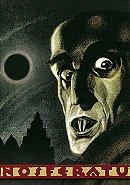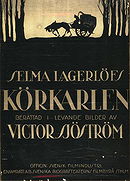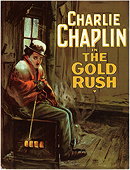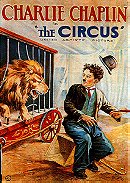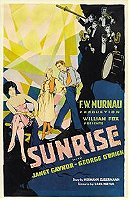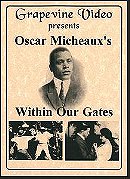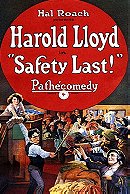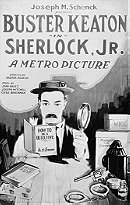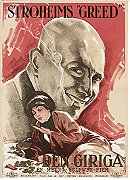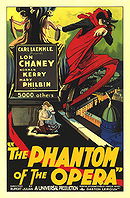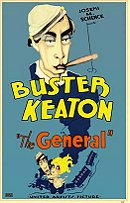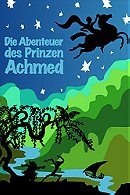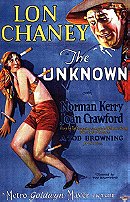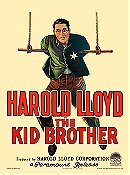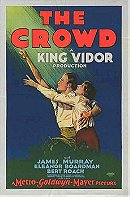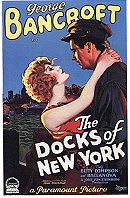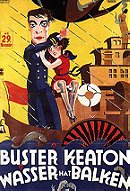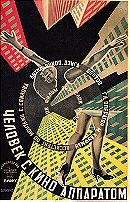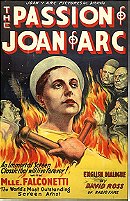20 Great Films from the 20s
Sort by:
Showing 20 items
Decade:
Rating:
List Type:
One of the most lavish and expensive films of the 20s, Raoul Walsh's 'The Thief of Bagdad' is the first screen version of a story that was filmed several times, though no other version captures the magic of this gem. Using the most beautiful effects of the time, 'The Thief of Bagdad' makes the audience believe in flying carpets, winged horses, magic ropes and giant monsters, all in a time when bringing any of these to the screen would have been a daunting prospect. Producer/star Douglas Fairbanks used this role to help establish his swashbuckling screen persona and long held the film dear as the favourite amongst all his projects. It's easy to see why. 'The Thief of Bagdad' is still genuinely exciting and magical for audiences of any era and a great introduction to silent films for those who are seeking a way in.
Now THIS is a Horror film! Brilliant German director F. W. Murnau's unauthorised adaptation of Bram Stoker's 'Dracula' (Murnau changed a few details to avoid being sued), 'Nosferatu' tells the story of Count Orlok and his reign of terror against the Hutter family. The story will be at least vaguely familiar to anyone who has read or seen at least one 'Dracula' adaptation.
However, the story itself is secondary to Murnau's Expressionist touches and the simply effective creation of Count Orlock through the barest of make-up and a terrifyingly convincing performance by actor Max Shreck. The viewer spends every second that the Count is offscreen with an ominous sense that this chillingly grotesque, eeriely soulless figure may turn up at any moment. Murnau wisely keeps him hidden for much of the runtime, making the moments when we are suddenly confronted with Shreck's rodent-like appearance all the more effective.
'Nosferatu' became a hugely influential Horror film, inspiring, among other works, a brilliant 70s reimagining by German director Werner Herzog, and E Elias Merhige's ingenious 'Shadow of the Vampire', which follows a fictionalised account of the making of 'Nosferatu' but posits the strangely plausible notion that Shreck himself was a real vampire.
However, the story itself is secondary to Murnau's Expressionist touches and the simply effective creation of Count Orlock through the barest of make-up and a terrifyingly convincing performance by actor Max Shreck. The viewer spends every second that the Count is offscreen with an ominous sense that this chillingly grotesque, eeriely soulless figure may turn up at any moment. Murnau wisely keeps him hidden for much of the runtime, making the moments when we are suddenly confronted with Shreck's rodent-like appearance all the more effective.
'Nosferatu' became a hugely influential Horror film, inspiring, among other works, a brilliant 70s reimagining by German director Werner Herzog, and E Elias Merhige's ingenious 'Shadow of the Vampire', which follows a fictionalised account of the making of 'Nosferatu' but posits the strangely plausible notion that Shreck himself was a real vampire.
An enormous influence on legendary director Ingmar Bergman, this early Swedish film is often inadequately described as a Horror film. Although its impressive effects and overwhelmingly creepy doom and gloom atmosphere do cause the spine to tingle, 'The Phantom Carriage' is more of a supernatural drama with elements of redemptive fantasies like Dickens' 'A Christmas Carol' or Frank Capra's 'It's a Wonderful Life'.
Written by, directed by and starring Victor Sjostrom (whom Bergman cast decades later in his not thematically-dissimilar 'Wild Strawberries') 'The Phantom Carriage' tells the story of David Holm, a brutish alcoholic who is accidentally killed in a fight and receives an eye-opening visitation from the titular ghostly apparition. Although it moves slowly and has the odd moment of overegged melodrama, 'The Phantom Carriage' is, for the most part, an immensely effective and visually impressive tale with an atmospheric intensity that is hard to shake off as the film ends.
Written by, directed by and starring Victor Sjostrom (whom Bergman cast decades later in his not thematically-dissimilar 'Wild Strawberries') 'The Phantom Carriage' tells the story of David Holm, a brutish alcoholic who is accidentally killed in a fight and receives an eye-opening visitation from the titular ghostly apparition. Although it moves slowly and has the odd moment of overegged melodrama, 'The Phantom Carriage' is, for the most part, an immensely effective and visually impressive tale with an atmospheric intensity that is hard to shake off as the film ends.
Chosen by Charlie Chaplin as the film he would most like to be remembered for, 'The Gold Rush' is a beautiful comedy about the exploits of Chaplin's Tramp character as he takes part in the Klondike Gold Rush of the late 1800s. Against the vividly depicted backdrop of a snowy mountain, Chaplin enacts some of his most famous sequences including the eating of a boot, the transformation into a chicken and the beloved 'dance of the rolls', a routine Chaplin did not invent but which he inarguably perfected.
Bizarrely, in an attempt to update his masterpiece for a modern audience used to sound, Chaplin recut 'The Gold Rush' in 1942, adding a dreadful narration which completely smothers the comedy and ignores the blatant fact that the story is told perfectly through Chaplin's extraordinary pantomime. Avoid this updated version at all costs and enjoy the original silent version instead.
Bizarrely, in an attempt to update his masterpiece for a modern audience used to sound, Chaplin recut 'The Gold Rush' in 1942, adding a dreadful narration which completely smothers the comedy and ignores the blatant fact that the story is told perfectly through Chaplin's extraordinary pantomime. Avoid this updated version at all costs and enjoy the original silent version instead.
Although it was a hit at the time of its release, 'The Circus' remains probably the least known of Chaplin's feature length silent comedies. Why this is exactly remains a mystery. I have always hated the circus and usually loathe stories which use it as a setting but Chaplin's circus film is typically brilliant, featuring perhaps the most subtle and effective examples of his trademark use of pathos to counterbalance the comedy.
Chaplin stars once again as the little tramp, who accidentally becomes the big hit of a circus with some completely inadvertant clowning. Unfortunately, he can only be funny unintentionally. Alongside this plot is a touching love triangle which leads to a beautifully downbeat but hopeful finale. But it's not just the emotional content that carries the film. Chaplin is everything you would hope for as a circus clown and the climactic tightrope act (complete with interfering monkeys) is an inexplicably overlooked classic sequence from Chaplin's silent comedies. Ripe for rediscovery, 'The Circus' is thankfully starting to gain the recognition it somehow missed out on after its initial commercial succes.
Chaplin stars once again as the little tramp, who accidentally becomes the big hit of a circus with some completely inadvertant clowning. Unfortunately, he can only be funny unintentionally. Alongside this plot is a touching love triangle which leads to a beautifully downbeat but hopeful finale. But it's not just the emotional content that carries the film. Chaplin is everything you would hope for as a circus clown and the climactic tightrope act (complete with interfering monkeys) is an inexplicably overlooked classic sequence from Chaplin's silent comedies. Ripe for rediscovery, 'The Circus' is thankfully starting to gain the recognition it somehow missed out on after its initial commercial succes.
Frequently considered the greatest silent film ever made, F.W. Murnau's 'Sunrise' is a beautiful romantic fairytale about a marriage that reaches breaking point, only for the couple to rediscover their deep love for one another.
Although the plot itself is sometimes ludicrously overwrought (the film's romantic 'hero' comes close to murdering both the female leads at different points in the narrative), Murnau sells the premise through the dreamlike atmosphere he evokes. Watching the central couple rediscover their love is utterly disarming, particularly when they wander through traffic oblivious to the danger around them, or indeed anything but each other, in an amazing tracking shot which is just one of the film's noted technical achievements. 'Sunrise' won the Academy Award for 'Unique and Artistic Production' at the first ever Oscar ceremony (the category was subsequently aborted) and I would say it was deserved had it not been up against an even better film: King Vidor's 'The Crowd'. Clearly by the end of the 1920s, silent cinema was really coming into its own. It almost seems a shame that sound cinema arrived so early.
Although the plot itself is sometimes ludicrously overwrought (the film's romantic 'hero' comes close to murdering both the female leads at different points in the narrative), Murnau sells the premise through the dreamlike atmosphere he evokes. Watching the central couple rediscover their love is utterly disarming, particularly when they wander through traffic oblivious to the danger around them, or indeed anything but each other, in an amazing tracking shot which is just one of the film's noted technical achievements. 'Sunrise' won the Academy Award for 'Unique and Artistic Production' at the first ever Oscar ceremony (the category was subsequently aborted) and I would say it was deserved had it not been up against an even better film: King Vidor's 'The Crowd'. Clearly by the end of the 1920s, silent cinema was really coming into its own. It almost seems a shame that sound cinema arrived so early.
Within Our Gates (1920)
D.W. Griffith's 'The Birth of a Nation' is an intensely irritating film for any socially-conscious film buff. A despicably racist celebration of the Ku Klux Klan, complete with deplorable depictions of African-Americans (grotesquely played by white actors in blackface) as lazy, ignorant and sexually aggressive, it also broke new cinematic ground with its epic scope and monumental battle scenes. As such, anyone with a serious interest in film history (myself included) tends to eventually seek out and sit through its exhausting 3 hours.
While this largely boring exercise was not without its moments of great cinematic interest, I am most glad to have seen 'The Birth of a Nation' because it allowed me to then see and more greatly appreciate Oscar Micheaux's 'Within Our Gates'. The oldest surviving film by an African-American director (Micheaux also wrote and produced his own films), 'Within Our Gates' was made in direct response to 'The Birth of a Nation'. An early example of independent film-making, 'Within Our Gates' predictably lacks the technical spectacle of Griffith's film but it more than makes up for it in its gripping and affecting storytelling with characters of greater emotional complexity.
Clocking in at a far more palatable 79 minutes, 'Within Our Gates' tells the story of Sylvia and her attempts to raise money to help save a school for poor black children. But not all the black characters are as admirable as Sylvia. Micheaux includes duplicitous backstabbers and violent drunks both black and white, making for a richer, less outright manipulative tale. It may not be a perfect film but 'Within Our Gates' is a fascinatingly progressive piece of work and boasts at least one unforgettable scene in Micheaux's powerful staging of a lynching.
While this largely boring exercise was not without its moments of great cinematic interest, I am most glad to have seen 'The Birth of a Nation' because it allowed me to then see and more greatly appreciate Oscar Micheaux's 'Within Our Gates'. The oldest surviving film by an African-American director (Micheaux also wrote and produced his own films), 'Within Our Gates' was made in direct response to 'The Birth of a Nation'. An early example of independent film-making, 'Within Our Gates' predictably lacks the technical spectacle of Griffith's film but it more than makes up for it in its gripping and affecting storytelling with characters of greater emotional complexity.
Clocking in at a far more palatable 79 minutes, 'Within Our Gates' tells the story of Sylvia and her attempts to raise money to help save a school for poor black children. But not all the black characters are as admirable as Sylvia. Micheaux includes duplicitous backstabbers and violent drunks both black and white, making for a richer, less outright manipulative tale. It may not be a perfect film but 'Within Our Gates' is a fascinatingly progressive piece of work and boasts at least one unforgettable scene in Micheaux's powerful staging of a lynching.
Safety Last! (1923) (1923)
Harold Lloyd will probably forever live in the twin-shadows of Charlie Chaplin and Buster Keaton, regularly referred too as the 'other' great comedian of the silent era. While he lacked the same level of creative input and spellbinding dexterity of his two more famous counterparts, Lloyd hardly ever failed to turn in films that were extraordinarily likable at worst and the best of which made you want to leap from your seat in enthusiastic joy.
'Safety Last' probably remains Lloyd's most famous film, if only for giving us one of cinema's most enduring images of all time, that of Lloyd dangling from a clock face. However, the whole of the film is stuffed with jokes that are spread perfectly throughout the film in neat little sequences, gradually building to the thrilling finale in which Lloyd is forced to climb a very tall building in place of his daredevil friend.
'Safety Last' probably remains Lloyd's most famous film, if only for giving us one of cinema's most enduring images of all time, that of Lloyd dangling from a clock face. However, the whole of the film is stuffed with jokes that are spread perfectly throughout the film in neat little sequences, gradually building to the thrilling finale in which Lloyd is forced to climb a very tall building in place of his daredevil friend.
Sherlock, Jr. (1924)
Probably my favourite silent film and also one of my favourite films full stop, Buster Keaton's 'Sherlock Jr.' is an ideal introduction to silent films for the apprehensive newcomer. At just 44 minutes long it barely reaches the official stipulation for 'feature length' but Keaton packs every single one of those 44 minutes with ingenious gags, thrilling stunts and jaw-dropping effects that remain unbelievably magical all these years later.
The story of a lovelorn projectionist who dreams that he is the famous titular detective, 'Sherlock Jr.' is best remembered for a stunning sequence in which Keaton walks up the cinema aisle and literally steps into the film on the screen, an idea Woody Allen inverted six decades later in his superb 'The Purple Rose of Cairo'.
But there is more to 'Sherlock Jr.' than this one (admittedly incredible) scene. Throughout, Keaton gives the coolest film performance I have ever seen, his famous deadpan expression enhanced by the competence and constant in-control nature of his character. As well as the phenomenal camera trickery, there are also tons of other types of effect that owe more to traditional sleight-of-hand magic or the exquisite acrobatics of Keaton. In my opinion comedy is the film genre that best utilises the medium of silent film and 'Sherlock Jr.' is the greatest example of the many classic silent comedies.
The story of a lovelorn projectionist who dreams that he is the famous titular detective, 'Sherlock Jr.' is best remembered for a stunning sequence in which Keaton walks up the cinema aisle and literally steps into the film on the screen, an idea Woody Allen inverted six decades later in his superb 'The Purple Rose of Cairo'.
But there is more to 'Sherlock Jr.' than this one (admittedly incredible) scene. Throughout, Keaton gives the coolest film performance I have ever seen, his famous deadpan expression enhanced by the competence and constant in-control nature of his character. As well as the phenomenal camera trickery, there are also tons of other types of effect that owe more to traditional sleight-of-hand magic or the exquisite acrobatics of Keaton. In my opinion comedy is the film genre that best utilises the medium of silent film and 'Sherlock Jr.' is the greatest example of the many classic silent comedies.
Greed (1924)
The story of the production of Erich von Stroheim's silent epic 'Greed' is more famous than that of the film itself and it tends to be more often talked about than viewed. This is a great shame, since the film is indeed a masterpiece. von Stronheim's original cut of his film ran for about 10 hours. He was subsequently convinced to cut it down and offered a more managable 6 hour cut. With studio bosses still not satisfied, von Stroheim offered a 4 hour cut as his final compromise. Sadly, this was still seen as too long and 'Greed' was taken out of von Stroheim's hands and hacked down further still to 2 and a half hours. The excised footage was subsequently destroyed, leaving 'Greed' permenantly unfinished and von Stroheim broken-hearted.
A relatively simple story about a brutish dentist whose wife wins the lottery, bringing out the worst in her and everyone around her, 'Greed' would almost certainly have been too long in von Stroheim's original cut. There are numerous versions of the film available but the one to seek out is the 4 hour reconstruction which reinstates missing scenes through the intergration of still images from the production and descriptive intertitles. It sounds like it wouldn't work but it takes the film back to something closer to von Stroheim's epic vision and makes the unforgettable climactic scenes in Death Valley feel truly earned.
A relatively simple story about a brutish dentist whose wife wins the lottery, bringing out the worst in her and everyone around her, 'Greed' would almost certainly have been too long in von Stroheim's original cut. There are numerous versions of the film available but the one to seek out is the 4 hour reconstruction which reinstates missing scenes through the intergration of still images from the production and descriptive intertitles. It sounds like it wouldn't work but it takes the film back to something closer to von Stroheim's epic vision and makes the unforgettable climactic scenes in Death Valley feel truly earned.
The Phantom of the Opera (1925)
If ever there was a film that was famous for one moment, Rupert Julian's 'The Phantom of the Opera' is it. The unmasking of the titular phantom is a deservedly renowned and shocking moment, which has unfortunately been shown over and over again on clip-shows, thus robbing it of its power within its proper context... or so you would think. But even with that famous image burned into my brain, it's still an incredible moment when it arrives when watching the film in its entirety.
It's a credit to the film that it tells its campy, melodramatic story so compellingly that the viewer is not all-consumed by the famous scene, neither do they lose interest once it has passed. A good deal of credit must be given to the legendary Lon Chaney, who stars as the phantom. An actor with an uncanny ability to inhabit grotesques, Chaney was one of the finest actors of the era (or any era, come to that). Better still, Chaney designed and applied all his own make-up in these roles. The unforgettable phantom-face image is entirely the work of the film's superb star.
It's a credit to the film that it tells its campy, melodramatic story so compellingly that the viewer is not all-consumed by the famous scene, neither do they lose interest once it has passed. A good deal of credit must be given to the legendary Lon Chaney, who stars as the phantom. An actor with an uncanny ability to inhabit grotesques, Chaney was one of the finest actors of the era (or any era, come to that). Better still, Chaney designed and applied all his own make-up in these roles. The unforgettable phantom-face image is entirely the work of the film's superb star.
The General (1926)
Usually considered to be Buster Keaton's greatest film, 'The General' was an expensive critical and commercial flop at the time of its release and resulted in Keaton being forced into a more restrictive relationship with his studio. It's hard to imagine how this could be in light of 'The General's latter day reputation and its obvious brilliance.
The story of a train engineer during the American Civil War, 'The General' is both a comedy and an adventure film. Central to its brilliance is a legendary train chase sequence which epitomises the film's delicate balance of laughs and thrills. Keaton pursues a gang of Union soldiers who have stolen a train and made an inadvertant prisoner of the woman he loves. The soldiers try everything to derail their pursuer but Keaton ingeniously avoids every obstacle. This sequence alone (which the Los Angeles Times unbelievably described as 'tedious') makes the film worth seeing but the whole thing is a classic and one of Keaton's crowning achievements.
The story of a train engineer during the American Civil War, 'The General' is both a comedy and an adventure film. Central to its brilliance is a legendary train chase sequence which epitomises the film's delicate balance of laughs and thrills. Keaton pursues a gang of Union soldiers who have stolen a train and made an inadvertant prisoner of the woman he loves. The soldiers try everything to derail their pursuer but Keaton ingeniously avoids every obstacle. This sequence alone (which the Los Angeles Times unbelievably described as 'tedious') makes the film worth seeing but the whole thing is a classic and one of Keaton's crowning achievements.
Released a good decade before Disney's 'Snow White and the Seven Dwarfs', Lotte Reiniger's 'The Adventures of Prince Achmed' is the oldest surviving animated feature film. This German animation uses cutout silhouettes to relate fantastical stories based on elements of '1001 Arabian Nights'. While this may sound primitive on paper, on screen Reiniger's shadow figures are surprisingly expressive and the film's impressive sets and pacey structure have the power to captivate the viewer very quickly.
While some may see it as little more than a historically significant curiosity, animation buffs like myself will likely love every minute of 'The Adventures of Prince Achmed'. Particularly treasurable is the character of the evil wizard and an early take on the shapeshifting 'wizard's duel' scenario, which Disney also tackled many years later in the underrated 'The Sword in the Stone'.
While some may see it as little more than a historically significant curiosity, animation buffs like myself will likely love every minute of 'The Adventures of Prince Achmed'. Particularly treasurable is the character of the evil wizard and an early take on the shapeshifting 'wizard's duel' scenario, which Disney also tackled many years later in the underrated 'The Sword in the Stone'.
The Unknown (1927)
Tod Browning's 'The Unknown' is less well known that his subsequent landmark Horror films 'Dracula' and Freaks' but it is at once more lurid, disturbing and utterly brilliant than both. The story of a fugitive murderer posing as an armless knife thrower in a circus, 'The Unknown' focuses exclusively on the grisly and unpleasant, tossing in a hefty dose of 'Twilight Zone' style irony for good measure.
'The Unknown' could easily have descended into camp but instead it manages to be deliciously sick and artistically superb all in one. As with 'The Phantom of the Opera', a good percentage of the credit must go to the film's star Lon Chaney. Of all the amazing Chaney performances I've seen, 'The Unknown' boasts the best. As Alonzo the Armless, Chaney digs into the psychological depths of a man capable of both the most callous murders and the most overwhelming love. That this unforgettable villain's romantic feelings for the young Joan Crawford come across as true love rather than warped romantic obsession is real testament to Chaney's talents and integral to the unexpected plot developments which make 'The Unknown' so special.
True to its title, 'The Unknown' is little seen but it tends to make an indelible impression on all those lucky enough to uncover it.
'The Unknown' could easily have descended into camp but instead it manages to be deliciously sick and artistically superb all in one. As with 'The Phantom of the Opera', a good percentage of the credit must go to the film's star Lon Chaney. Of all the amazing Chaney performances I've seen, 'The Unknown' boasts the best. As Alonzo the Armless, Chaney digs into the psychological depths of a man capable of both the most callous murders and the most overwhelming love. That this unforgettable villain's romantic feelings for the young Joan Crawford come across as true love rather than warped romantic obsession is real testament to Chaney's talents and integral to the unexpected plot developments which make 'The Unknown' so special.
True to its title, 'The Unknown' is little seen but it tends to make an indelible impression on all those lucky enough to uncover it.
The Kid Brother (1927)
While Harold Lloyd may never be as highly regarded as Chaplin or Keaton, in 'The Kid Brother' he has at least one film that can be mentioned in the same breath as the masterworks of those two giants of silent comedy. While less well known than the likes of 'Safety Last' or 'The Freshman', 'The Kid Brother' is recognised by a small group of film enthusiasts (myself included) as the perfect Harold Lloyd film.
Frankly, I can't get enough of this film. Lloyd apparently wanted it to have more gags than any other film he'd made before but 'The Kid Brother' has so much more. It's funny, sweet, ingenious, romantic and exciting. The story of a runty little brother in a well respected family of brutish mens' men, 'The Kid Brother' offers up a series of exquisite set pieces as Lloyd's character falls in love, faces his fears and makes good. The finale mixes laughs and thrills as perfectly as I've ever seen it done and makes you literally want to stand up and cheer. By contrast, the scene in which Lloyd climbs higher and higher up a tree for just one more glimpse of the girl he's fallen in love with is one of the sweetest and most beautifully realised moments in silent cinema. With it's gorgeous rural setting and captivating pace, 'The Kid Brother' is a wonder to behold and, thanks to a rousing new score by Carl Davis on the current DVD edition, it's also a wonder to listen to.
Frankly, I can't get enough of this film. Lloyd apparently wanted it to have more gags than any other film he'd made before but 'The Kid Brother' has so much more. It's funny, sweet, ingenious, romantic and exciting. The story of a runty little brother in a well respected family of brutish mens' men, 'The Kid Brother' offers up a series of exquisite set pieces as Lloyd's character falls in love, faces his fears and makes good. The finale mixes laughs and thrills as perfectly as I've ever seen it done and makes you literally want to stand up and cheer. By contrast, the scene in which Lloyd climbs higher and higher up a tree for just one more glimpse of the girl he's fallen in love with is one of the sweetest and most beautifully realised moments in silent cinema. With it's gorgeous rural setting and captivating pace, 'The Kid Brother' is a wonder to behold and, thanks to a rousing new score by Carl Davis on the current DVD edition, it's also a wonder to listen to.
The Crowd (1928)
King Vidor's 'The Crowd' is a film that is completely audacious in the mundanity of its premise. In the stunning opening sequence, Vidor's camera enters an office building and slowly zooms in to choose one of the institution's workers seemingly at random. From hereon in we follow this man's story but the implication is that we could have found equal levels of both drama and straightforward routine in any one of that building's many workers. 'The Crowd' seems to choose its protagonist randomly instead of according to potential audience interest.
While the story does contain plenty of points of interest and even some overwrought melodrama, 'The Crowd' never betrays its dedication to the arbitrary nature of its focus and ultimately at the film's climax the camera pulls back to lose it's hero in the crowd once more. This brilliant narrative experiment, beautifully directed by Vidor, became a hugely influential cinema landmark. Its influence can easily be spotted in Billy Wilder's brilliant comedy/drama 'The Apartment', in which Wilder recreates the landmark opening sequence to pick out Jack Lemmon amongst a roomful of drones.
While the story does contain plenty of points of interest and even some overwrought melodrama, 'The Crowd' never betrays its dedication to the arbitrary nature of its focus and ultimately at the film's climax the camera pulls back to lose it's hero in the crowd once more. This brilliant narrative experiment, beautifully directed by Vidor, became a hugely influential cinema landmark. Its influence can easily be spotted in Billy Wilder's brilliant comedy/drama 'The Apartment', in which Wilder recreates the landmark opening sequence to pick out Jack Lemmon amongst a roomful of drones.
The Docks of New York (1928)
Josef von Sternberg's salty melodrama is a brilliantly-told story of a ship's crew who spend one night ashore in New York. The film focuses on the coarse brute Bill Roberts, who saves a young prostitute from drowning and finds himself embroiled in a relationship which may or may not be borne of real love. Typically of the last days of silent cinema, 'The Docks of New York' is impeccably told through vivid stylised acting and strong direction from Sternberg.
Steamboat Bill, Jr. (1928)
With 'Steamboat Bill Jr.', Buster Keaton continued to churn out brilliant, inventive work that went sorely underappreciated. Although latterly acknowledged as a classic, 'Steamboat Bill Jr.' went down poorly with audiences and critics of the time and further contributed to Keaton's loss of creative control.
And yet it is here that audiences can find Keaton's most well-known gag: in the midst of a ferocious cyclone, the front portion of a house is blown down on top of Keaton. He is only saved by an open attic window, which allows the framework to fit neatly around his body. The stunt was reportedly extremely risky and had Keaton been even marginally off his mark he would have been seriously injured or even killed. Such was the man's dedication to his art, making his loss of independence even more lamentable.
And yet it is here that audiences can find Keaton's most well-known gag: in the midst of a ferocious cyclone, the front portion of a house is blown down on top of Keaton. He is only saved by an open attic window, which allows the framework to fit neatly around his body. The stunt was reportedly extremely risky and had Keaton been even marginally off his mark he would have been seriously injured or even killed. Such was the man's dedication to his art, making his loss of independence even more lamentable.
Man with a Movie Camera (1929)
Dziga Vertov's 'Man with a Movie Camera' is an early experiment in non-narrative cinema. Using a range of cinematic techniques, Vertov presents a day in the life of Soviet citizens at work and play. The film quickly cuts between images of everday life, some real, some clearly staged. In this manner the film builds up its own unique and mesmerising rythmn.
Into this gradually building momentum, Vertov also inserts a few technical flourishes. A cameraman appears to be standing atop a second, giant camera. A man appears to be submerged in a glass of beer. These images of the fantastical and the mundane create a hypnotic moving collage that leaves a strong impression on the viewer. Vertov's groundbreaking work clearly influenced such later works as Godfrey Reggio's superb non-narrative film 'Koyaanisqatsi'.
Into this gradually building momentum, Vertov also inserts a few technical flourishes. A cameraman appears to be standing atop a second, giant camera. A man appears to be submerged in a glass of beer. These images of the fantastical and the mundane create a hypnotic moving collage that leaves a strong impression on the viewer. Vertov's groundbreaking work clearly influenced such later works as Godfrey Reggio's superb non-narrative film 'Koyaanisqatsi'.
The Passion of Joan of Arc (2002)
Carl Theodore Dreyer's 'The Passion of Joan of Arc' is an emotionally taxing but utterly brilliant account of Joan of Arc's time as a captive of the British, which lead to her being burned at the stake. Dreyer uses actual dialogue from historical records and focuses closely on the faces of his protagonists. In particular, the camera favours Renee Falconetti as Joan, capturing every gut-wrenchingly convincing nuance of her facial expressions.
Falconetti's utterly naturalistic performance is rightfully considered as one of the most devastating of all time. She completely embodies Joan of Arc in every subtle facial movement. By the film's end, it is Falconetti's face that will be burned into the viewer's mind above any other image. Having achieved near perfection with this, only her second screen role, Falconetti never acted in films again but her astonishing performance continues to be acknowledged as one of the greatest of all time to this day.
Falconetti's utterly naturalistic performance is rightfully considered as one of the most devastating of all time. She completely embodies Joan of Arc in every subtle facial movement. By the film's end, it is Falconetti's face that will be burned into the viewer's mind above any other image. Having achieved near perfection with this, only her second screen role, Falconetti never acted in films again but her astonishing performance continues to be acknowledged as one of the greatest of all time to this day.
Added to
Related lists
20 From 70. My Favorite Films From The Year 1970
20 item list by The Mighty Celestial
13 votes 2 comments
2 comments
20 item list by The Mighty Celestial
13 votes
 2 comments
2 comments
35 From 00: My Favorite Films From The Year 2000
35 item list by The Mighty Celestial
6 votes 1 comment
1 comment
35 item list by The Mighty Celestial
6 votes
 1 comment
1 comment
View more top voted lists
 Login
Login
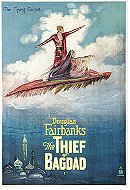
 236
236
 7.6
7.6
 7.7
7.7
